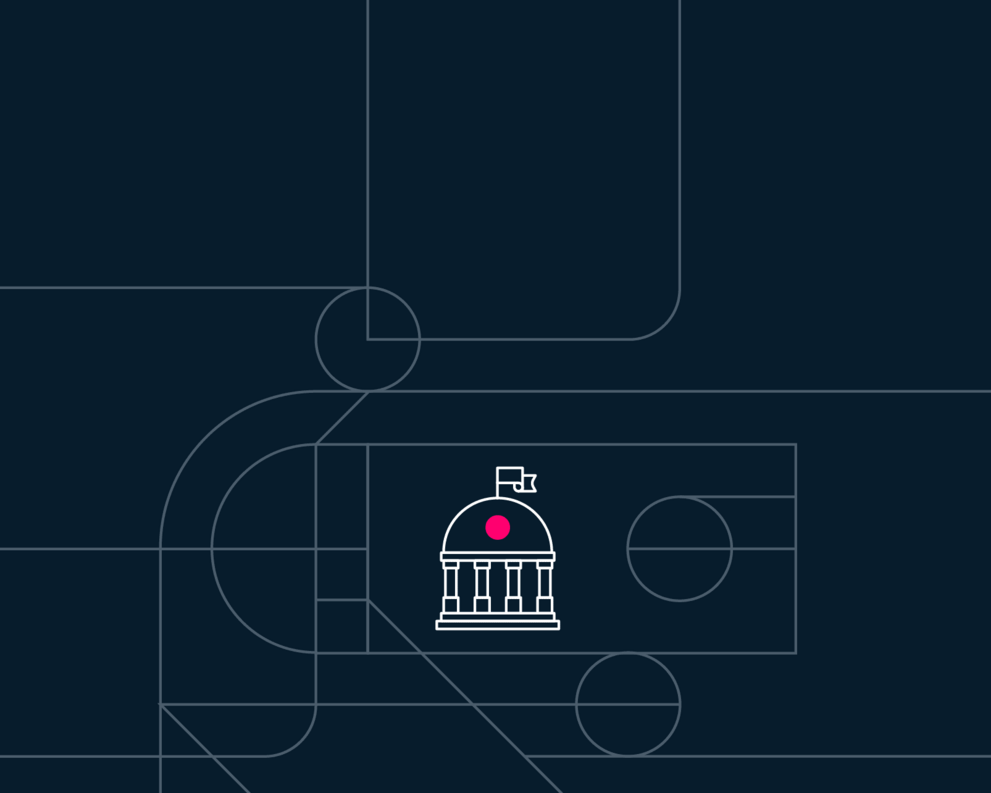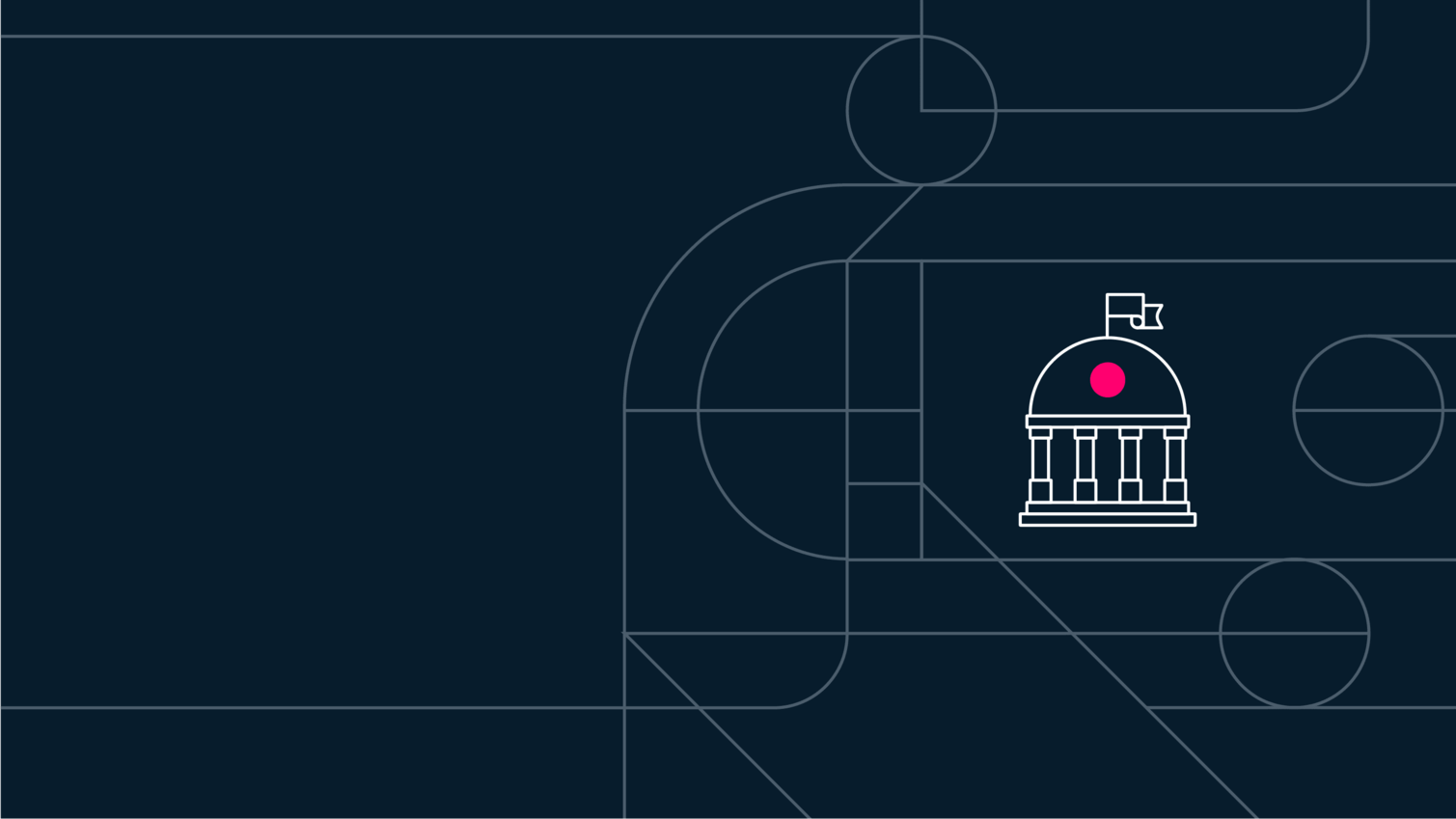Register for politics courses
Whether it's the legislation a government enacts or the elections that install leaders, political decisions impact daily life in profound ways. With an understanding of politics, people can become informed citizens, empowered advocates, and stronger leaders.
While the majority of U.S. adults do not want to hear businesses speak on current events broadly, most Americans would still prefer to hear organizations’ perspectives on climate change, mental health, and diversity, equity, and inclusion.1 And political knowledge can extend beyond just making press statements. Professionals can use these skills to lead their organization through taxation, regulation, and policy changes toward a better, more successful future for businesses and consumers alike.2
By taking politics courses online, you can gain insights that will help you anticipate and manage changes in global politics, equipping you to make strategic business decisions and be an informed citizen.What is politics?
Politics is the practice and theory of what governments, political parties, and members of law-making organizations do to influence the people under their power and move them towards a desired outcome.3
Some of the facets of politics that affect individuals, organizations, and businesses include:
- Taxation. Tax policies determine the type, amount, and rate that income is taxed. For individuals, this can influence decisions about retirement, where to live, and how much to spend. For businesses, tax policy can affect how an organization borrows and invests, among other things4
- Public policy. Broadly, public policy includes government actions (and inaction) regarding laws, court decisions, and regulations. For example, policies around short- and long-term issues dictate how societies should operate regarding health, safety, transportation and housing. Public policy can determine people’s access to goods and services, as well as how those services are managed and delivered5
- Regulations and compliance. To operate legally, businesses must comply with their governments, or global governments, specific regulations regarding aspects like the environment or privacy. For example, the Hong Kong stock exchange requires listed companies disclose emissions-related data6
- Political climate. The active sentiment, trust, and stability in government affects our experiences with not just political organizations, but with one another. Additionally, when regions or nations experience political unrest, it can hamper business growth and economic strength. In 2019, more than half of global executives said political risk was higher on their company than two years prior7
Careers in politics
While many may assume political careers only include positions like elected official or lobbyist, the reality is that professionals in all industries can do policy-related work. Some examples of jobs that use political knowledge and skills include:
- Corporate Social Responsibility (CSR) manager: Develops and implements strategies that promote sustainable and ethical business practices that align with the company’s values and goals8
- Political risk analyst: Assesses and predicts potential risks and challenges arising from political decisions, events, and developments on behalf of companies and organizations9
- Regulatory affairs specialist: Helps a company or organization meet all government regulations that apply to their products, from local to international standards10
- Government contract specialist: Writes, negotiates, finalizes, and monitors the contracts of a business with the government11
Why should I enroll in politics short courses?
Professionals who wish to gain a deeper understanding of the business implications of an increasingly globalized society can benefit from keeping their knowledge and skills updated.
For those interested in political courses, online options from GetSmarter are geared towards upskilling public sector workers. These online courses also give professionals who operate in the private sector insight into the world of public policy, where you’ll learn real-world practices that can be implemented directly into your policy environment. The courses take current political circumstances into account and serve to address business challenges that arise as a result.
Sources
1Hrynowski, Zach. (Aug, 2024). ’Americans still want business to stay quiet on public policy’. Retrieved from Gallup.
2Boyles, Michael. (Jul, 2022). ‘Understanding how politics can affect your business’. Retrieved from Harvard Business School Online.
3(n.d.). ‘Politics’. Retrieved from Cambridge Dictionary. Accessed on December 12, 2024.
4Streeter, Jialu L. (Oct, 2022). ‘How do tax policies affect individuals and businesses?’. Retrieved from Stanford Institute for Economic and Policy Research (SIEPR).
5(n.d.). ‘What is public policy and why is it important?’. Retrieved from Mackinac Center for Public Policy. Accessed on December 12, 2024.
6(May, 2024). ‘New climate-related ESG disclosures for Hong Kong-listed issuers’. Retrieved from Debevoise & Plimpton.
7Cline, Mary. (Oct, 2020). ‘How political risk affects five areas at the top of the C-suite agenda’. Retrieved from EY-Parthenon.
8(n.d.). ‘Hiring CSR managers’. Retrieved from LinkedIn Talent Solutions. Accessed on December 12, 2024.
9Mart, Charlie. (n.d.). ‘Becoming a political risk analyst: A comprehensive guide’. Retrieved from Huzzle. Accessed on December 13, 2024.
10Joubert, Shayna. (Oct, 2024). ‘What does a regulatory specialist do?’. Retrieved from Northeastern University.
11(June, 2024). ‘How to become a contract specialist: What you need to know’. Retrieved from Indeed.Register for politics courses
Whether it's the legislation a government enacts or the elections that install leaders, political decisions impact daily life in profound ways. With an understanding of politics, people can become informed citizens, empowered advocates, and stronger leaders.
While the majority of U.S. adults do not want to hear businesses speak on current events broadly, most Americans would still prefer to hear organizations’ perspectives on climate change, mental health, and diversity, equity, and inclusion.1 And political knowledge can extend beyond just making press statements. Professionals can use these skills to lead their organization through taxation, regulation, and policy changes toward a better, more successful future for businesses and consumers alike.2
By taking politics courses online, you can gain insights that will help you anticipate and manage changes in global politics, equipping you to make strategic business decisions and be an informed citizen.What is politics?
Politics is the practice and theory of what governments, political parties, and members of law-making organizations do to influence the people under their power and move them towards a desired outcome.3
Some of the facets of politics that affect individuals, organizations, and businesses include:
- Taxation. Tax policies determine the type, amount, and rate that income is taxed. For individuals, this can influence decisions about retirement, where to live, and how much to spend. For businesses, tax policy can affect how an organization borrows and invests, among other things4
- Public policy. Broadly, public policy includes government actions (and inaction) regarding laws, court decisions, and regulations. For example, policies around short- and long-term issues dictate how societies should operate regarding health, safety, transportation and housing. Public policy can determine people’s access to goods and services, as well as how those services are managed and delivered5
- Regulations and compliance. To operate legally, businesses must comply with their governments, or global governments, specific regulations regarding aspects like the environment or privacy. For example, the Hong Kong stock exchange requires listed companies disclose emissions-related data6
- Political climate. The active sentiment, trust, and stability in government affects our experiences with not just political organizations, but with one another. Additionally, when regions or nations experience political unrest, it can hamper business growth and economic strength. In 2019, more than half of global executives said political risk was higher on their company than two years prior7
Careers in politics
While many may assume political careers only include positions like elected official or lobbyist, the reality is that professionals in all industries can do policy-related work. Some examples of jobs that use political knowledge and skills include:
- Corporate Social Responsibility (CSR) manager: Develops and implements strategies that promote sustainable and ethical business practices that align with the company’s values and goals8
- Political risk analyst: Assesses and predicts potential risks and challenges arising from political decisions, events, and developments on behalf of companies and organizations9
- Regulatory affairs specialist: Helps a company or organization meet all government regulations that apply to their products, from local to international standards10
- Government contract specialist: Writes, negotiates, finalizes, and monitors the contracts of a business with the government11
Why should I enroll in politics short courses?
Professionals who wish to gain a deeper understanding of the business implications of an increasingly globalized society can benefit from keeping their knowledge and skills updated.
For those interested in political courses, online options from GetSmarter are geared towards upskilling public sector workers. These online courses also give professionals who operate in the private sector insight into the world of public policy, where you’ll learn real-world practices that can be implemented directly into your policy environment. The courses take current political circumstances into account and serve to address business challenges that arise as a result.
Sources
1Hrynowski, Zach. (Aug, 2024). ’Americans still want business to stay quiet on public policy’. Retrieved from Gallup.
2Boyles, Michael. (Jul, 2022). ‘Understanding how politics can affect your business’. Retrieved from Harvard Business School Online.
3(n.d.). ‘Politics’. Retrieved from Cambridge Dictionary. Accessed on December 12, 2024.
4Streeter, Jialu L. (Oct, 2022). ‘How do tax policies affect individuals and businesses?’. Retrieved from Stanford Institute for Economic and Policy Research (SIEPR).
5(n.d.). ‘What is public policy and why is it important?’. Retrieved from Mackinac Center for Public Policy. Accessed on December 12, 2024.
6(May, 2024). ‘New climate-related ESG disclosures for Hong Kong-listed issuers’. Retrieved from Debevoise & Plimpton.
7Cline, Mary. (Oct, 2020). ‘How political risk affects five areas at the top of the C-suite agenda’. Retrieved from EY-Parthenon.
8(n.d.). ‘Hiring CSR managers’. Retrieved from LinkedIn Talent Solutions. Accessed on December 12, 2024.
9Mart, Charlie. (n.d.). ‘Becoming a political risk analyst: A comprehensive guide’. Retrieved from Huzzle. Accessed on December 13, 2024.
10Joubert, Shayna. (Oct, 2024). ‘What does a regulatory specialist do?’. Retrieved from Northeastern University.
11(June, 2024). ‘How to become a contract specialist: What you need to know’. Retrieved from Indeed.

.jpg)